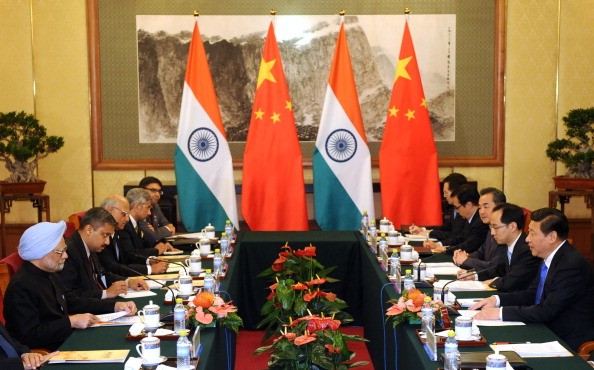In an article published in the Global Times, the Chinese government said that it will not get involved in the spat between India and Pakistan on the issue of Kashmir.
The state mouthpiece said that China's position is a bilateral matter and that the Kashmir issue--in the same vein--is a bilateral matter. China also clarified that the China-Pakistan Economic Corridor (CPEC) will not affect their stand on the issue.
Geng Shuang, a spokesperson from the Chinese foreign ministry, said, "China's position on the issue of Kashmir is clear and consistent. . . . It shall be properly addressed by India and Pakistan through consultation and negotiation."
Beijing had initially expressed interest in mediating between India and Pakistan but changed its position after the meeting of Turkish President Tayyip Erdogan with Chinese officials last month. President Erdogan expressed the same interest in mediating between India and Pakistan.
China said that the government wants to preserve the massive investment made for the One Belt, One Road initiative and has a vested interest in helping resolve conflicts in the region.
The Global Times wrote, "Given the massive investment that China has made in countries along the One Belt, One Road, China now has a vested interest in helping resolve regional conflicts including the dispute over Kashmir between India and Pakistan."
The CPEC is valued at $46 billion and intends to link Gwadar in Balochistan to China's Xinjiang Province. The corridor will extend through Gilgit and Baltistan, which is part of Jammu and Kashmir.
However, India is still showing disinterest in cooperating with China as they have still not given confirmation to attend the upcoming One Belt, One Road Summit in May.
The Turkish president, on the other hand, will join the One Belt, One Road summit, according to Deputy Prime Minister Tuğrul Turkeş.
He said, "Our president will visit China to participate in the 'Belt and the Road Summit' in Beijing on May 14 and 15, responding to an invitation by Chinese President Xi."



























